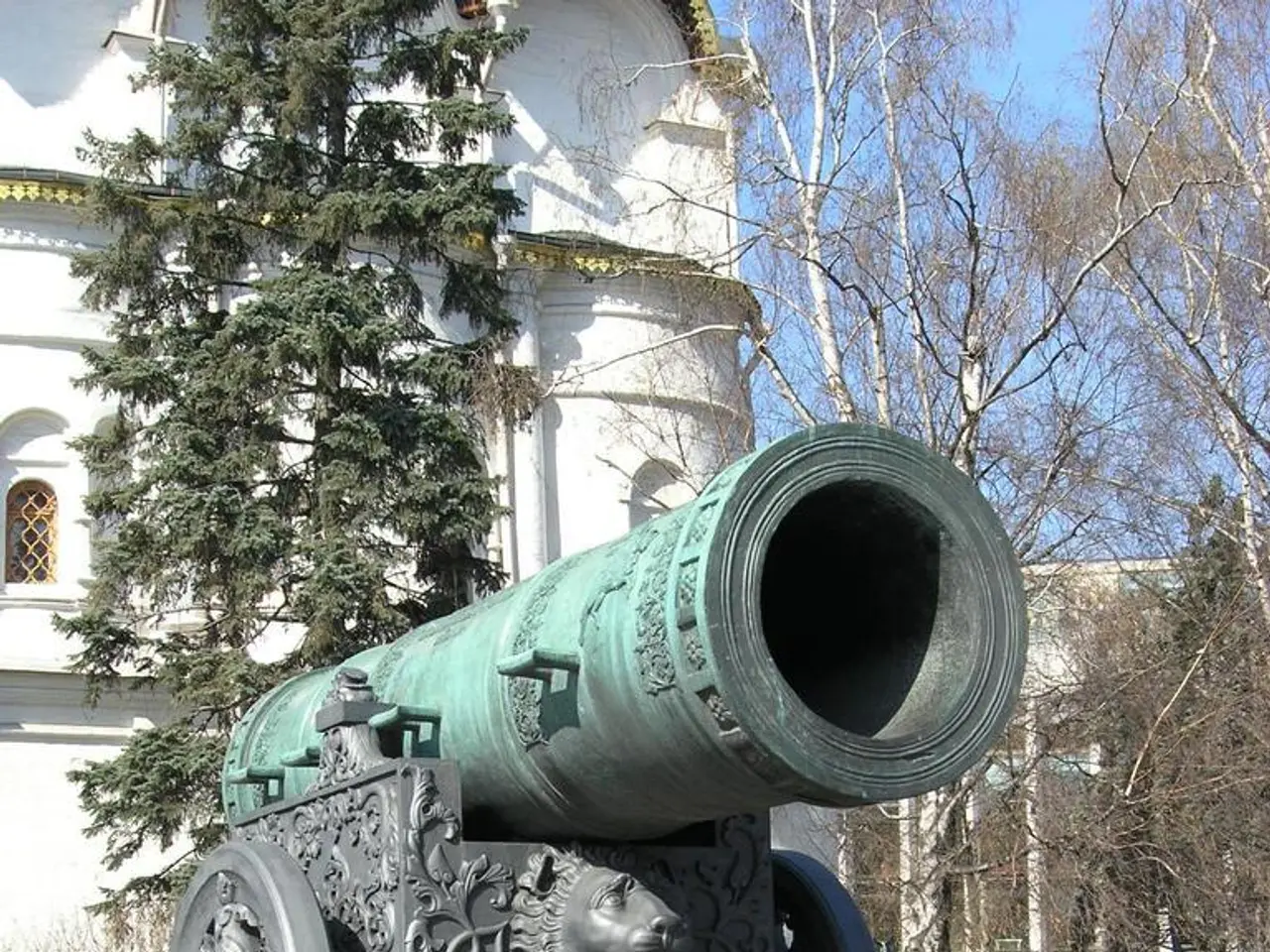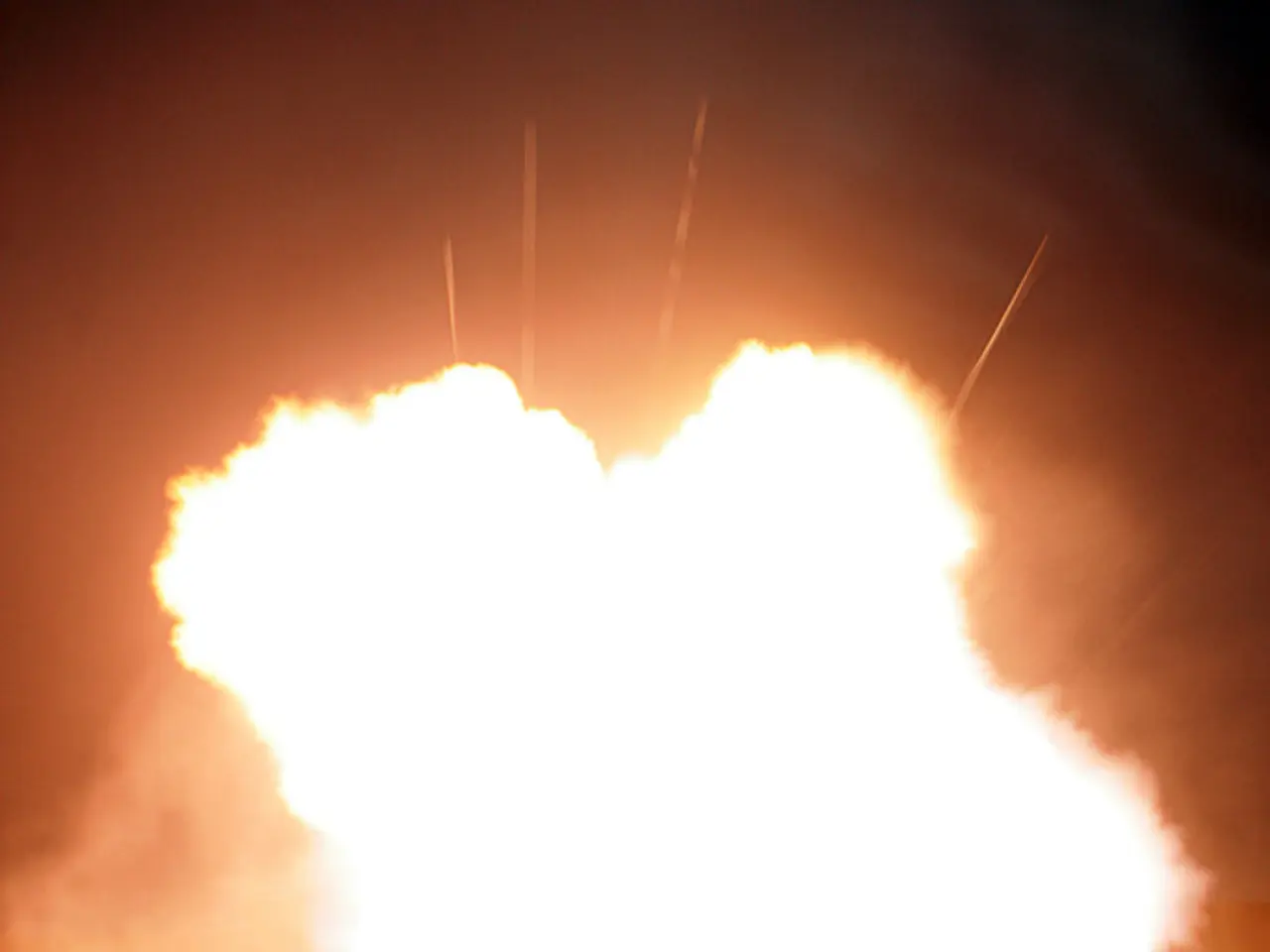Moscow's Foreign Ministry Summons Ambassador Lambsdorff.
In a recent turn of events, diplomatic tensions have surfaced between Russia and Germany, centering around the territorial dispute involving the Southern Kuril Islands. Despite Germany not claiming the islands, Russia has expressed concern over statements made by the German ambassador to Japan, Petra Sigmund, which were perceived as challenging Russia's sovereignty over the islands.
The Southern Kuril Islands, a long-standing point of contention between Russia and Japan, were not specified as part of Russia by the results of World War II, according to Germany's position. However, Russia asserts legal sovereignty over the islands, rooted in the outcomes of World War II and post-war agreements. The Russian Foreign Ministry claims that Russian sovereignty over the Southern Kuril Islands is undisputed and legally grounded [1][2].
The diplomatic issue arose following Ambassador Sigmund's visit to the Japanese city of Nemuro on the island of Hokkaido near the Southern Kurils. Russia has protested these statements, emphasizing that the islands were legally transferred to Russia after World War II and rejected Germany's implicit support for Japan's territorial claims [1].
The German Embassy, in response, called Russia's revisionism a problem in international politics, stating that it is Moscow that knowingly and persistently violates both the fundamental principles of the European peace order and those of the UN Charter. The Embassy also criticized Russia for using the visit as a pretext for protest while Russia is violating Ukraine's sovereignty and territorial integrity [3].
Ambassador Alexander Graf Lambsdorff, who has been a vocal critic of Russia's invasion of Ukraine, further criticized Russia's military presence in Ukraine, stating that Russia is violating Ukraine's sovereignty and territorial integrity with several hundred thousand soldiers daily [4].
In response, the Russian Foreign Ministry returned criticism, reminding the German side that supporting Japan's legally unfounded territorial claims is "particularly insulting" in the year marking the 80th anniversary of the end of World War II and the defeat of militaristic Japan [5]. The Ministry also warned Germany against questioning the results of World War II and not recognizing the Southern Kuril Islands as part of Russia, stating that this is a post-war order recognized by the United Nations [6].
Despite the ongoing diplomatic tensions, it is essential to note that the territorial dispute involves Russia and Japan, with Russia maintaining that the islands are part of its territory based on the Yalta Agreement and subsequent international law. Russia has also stated that due to constitutional changes, the territory is not subject to alienation, and negotiations with Japan have been largely symbolic and ineffective [2].
In summary, while there is no current territorial dispute between Russia and Germany over these islands, diplomatic tensions exist due to Germany's commentary perceived as supporting Japan's claims. The Southern Kuril Islands remain a point of contention between Russia and Japan, with Russia closing the question constitutionally and politically.
[1] Russian Foreign Ministry statement on Ambassador Sigmund's remarks [2] Russian position on the Southern Kuril Islands [3] German Embassy statement on Russia's protest [4] Ambassador Lambsdorff's criticism of Russia's military presence in Ukraine [5] Russian Foreign Ministry's response to Germany's statement [6] Russian Foreign Ministry's warning to Germany on the Southern Kuril Islands issue
The ongoing diplomatic tensions between Russia and Germany are not limited to the Southern Kuril Islands dispute with Japan, as statements from the German ambassador to Japan have been perceived as challenging Russia's sovereignty over the islands. This issue has also become a subject of concern in the realm of general news and politics, as it highlights the complexities of international relations.
The German Embassy's stance on Russia's revisionism has also extended to criticizing Moscow's military presence in Ukraine, accentuating the broader implications of politics and war-and-conflicts in the international community.








